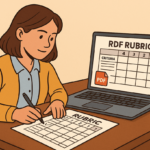Restaurant gift card sales experience dramatic increases during winter months due to a combination of seasonal dining patterns, holiday-giving traditions, and economic factors that converge during colder periods. This surge reflects changes in consumer behaviour and strategic business positioning by restaurant operators who capitalize on predictable seasonal demand. Winter weather creates unique dining preferences that make restaurant gift cards particularly appealing to both gift givers and recipients. Seasonal dining habits shift dramatically during winter as consumers naturally seek warm, comfortable environments that restaurants provide. Celebrate comfortably during colder months by budgeting wisely, and always consider your gift card mall balance before heading out to enjoy those cozy seasonal meals.
Holiday gift-giving traditions
Winter holidays create massive gift card demand as restaurants become popular for experiential gifts that recipients can enjoy throughout the season. These seasonal celebrations drive gift card sales patterns that restaurants depend on for revenue optimization.
- Christmas and holiday parties increase demand for casual dining gift cards
- New Year celebrations drive upscale restaurant gift card purchases
- Valentine’s Day preparations begin during winter months with advance purchases
- Winter birthdays and anniversaries require cold-weather appropriate gift options
- Corporate holiday gifts often favour restaurant cards over merchandise alternatives
- Family gathering needs during holidays create bulk gift card purchasing opportunities
These holiday-driven purchases create predictable sales spikes that restaurants use to forecast revenue and adjust marketing strategies for maximum seasonal impact.
Comfort dining psychology
Cold weather fundamentally changes consumer dining preferences toward hearty, warming meals that restaurants excel at providing compared to home cooking alternatives. This psychological shift creates natural demand increases for restaurant experiences during winter months.
- Soup and comfort food cravings drive casual restaurant visits during cold periods
- Hot beverage preferences increase coffee shop and cafe gift card appeal
- Indoor dining becomes preferred entertainment over outdoor activities
- Delivery and takeout frequency increases due to weather avoidance preferences
- Special occasion dining moves indoors from summer outdoor venues
- Weekend dining replaces outdoor recreational activities during harsh weather
These comfort-seeking behaviours create sustained demand for restaurant gift cards throughout winter rather than during specific holidays.
Economic timing advantages
Winter coincides with various economic factors that make restaurant gift cards particularly attractive for purchasers and recipients this season. Tax refund anticipation, year-end bonuses, and budget planning cycles align with winter gift card purchasing patterns. Year-end financial planning often includes gift card purchases as tax-advantaged business expenses or personal budget allocations for upcoming entertainment spending. Many consumers receive holiday bonuses or tax refunds during winter months, creating discretionary income specifically available for gift card investments that provide future dining value.
Restaurant operators respond to these economic patterns by offering promotional incentives during winter months that enhance gift card value through bonus cards or percentage discounts. These promotions capitalize on increased consumer spending capacity while building customer loyalty for slower periods following the winter surge. Restaurant gift card sales spikes during winter reflect the intersection of holiday traditions, comfort dining psychology, and favourable economic timing, creating optimal conditions for gift-givers and restaurant operators seeking seasonal revenue growth.












